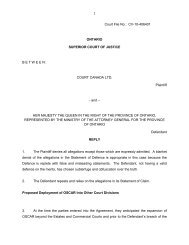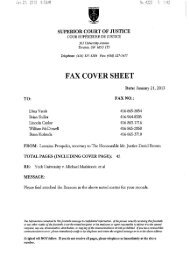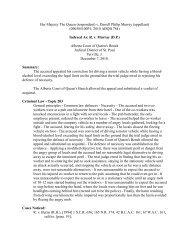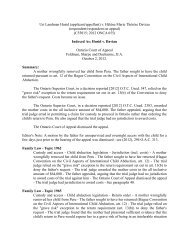Rogers Communications Inc., Rogers Wireless Partnership ... - Slaw
Rogers Communications Inc., Rogers Wireless Partnership ... - Slaw
Rogers Communications Inc., Rogers Wireless Partnership ... - Slaw
You also want an ePaper? Increase the reach of your titles
YUMPU automatically turns print PDFs into web optimized ePapers that Google loves.
Copyright - Topic 3440Fees, charges or royalties - Determination of - Judicial review - The Copyright Board (theFederal Court of Appeal agreeing), opined that streams of musical works over theInternet came within the exclusive right of copyright holders to communicate "to thepublic" by telecommunication (Copyright Act (s. 3(1)(f)) - Accordingly Tariffs could beestablished - Music service providers appealed - The Supreme Court of Canada discussedthe standard of review given that the court and the Copyright Board had concurrentjurisdiction at first instance in interpreting the Copyright Act - That concurrentjurisdiction rebutted the presumption of reasonablness review of the Board's decisions onquestions of law under its home statute - Therefore, the standard of correctness was theappropriate standard of review on questions of law arising on judicial review from theCopyright Board, such as the interpretation issue in this case - However, the Board'sapplication of the correct legal principles to the facts of a particular matter should betreated with deference - See paragraphs 10 to 20.Copyright - Topic 3444Fees, charges or royalties - Internet (world wide web) - Music - Section 3(1)(f) of theCopyright Act gave copyright holders the sole right, "to communicate the work to thepublic by telecommunication" - At issue was whether streaming of files (musical works)from the Internet triggered by individual users constituted communication “to the public”of the musical works by online music service providers - The Supreme Court of Canadastated that "Following the online music services' business model, musical works areindiscriminately made available to anyone with Internet access to the online musicservice's website. This means that the customers requesting the streams are not membersof a narrow group, such as a family or a circle of friends. Simply, they are 'the public'. Inthese circumstances, the transmission of any file containing a musical work, starting withthe first, from the online service's website to the customer's computer, at the customer'srequest, constitutes "communicat[ing] the work to the public by telecommunication" -See paragraph 56.Copyright - Topic 3444Fees, charges or royalties - Internet (world wide web) - Music - Section 3(1)(f) of theCopyright Act provided that copyright holders had the sole right, "to communicate thework to the public by telecommunication" - At issue was whether streaming of files(musical works) from the Internet triggered by individual users constitutedcommunication “to the public” of the musical works by online music service providers -The online music service providers claimed that a point-to-point transmission wasnecessarily a private transaction outside the scope of the exclusive right to communicateto the public - The Supreme Court of Canada held that although they occurred betweenthe online music provider and the individual consumer in a point-to-point fashion, thetransmissions of musical works in this case, where they constituted "communications",could be nothing other than communications "to the public" - The online music serviceproviders business model was premised on the expectation of multiple sales of any givenmusical work listed in their catalogue - The necessary implication of that business modelwas that there would be a "series of repeated ... transmissions of the same work to


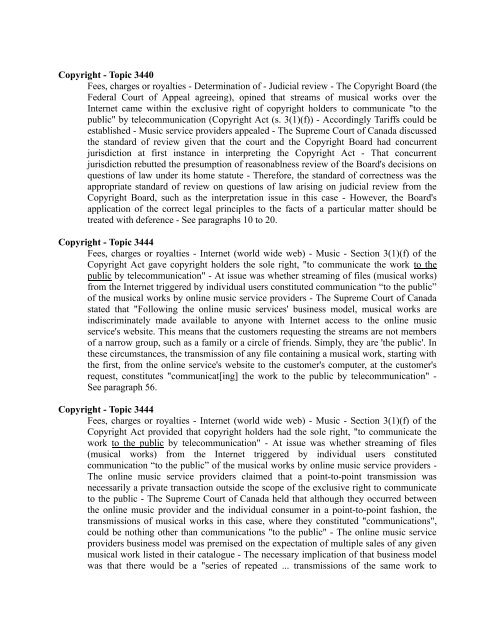
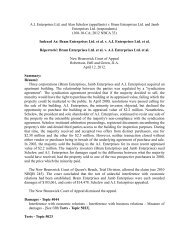

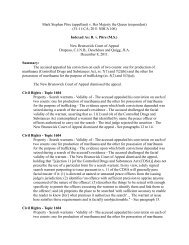
![Jones (appellant) v. Kaney (respondent) ([2011] UKSC 13 ... - Slaw](https://img.yumpu.com/46577625/1/190x245/jones-appellant-v-kaney-respondent-2011-uksc-13-slaw.jpg?quality=85)
